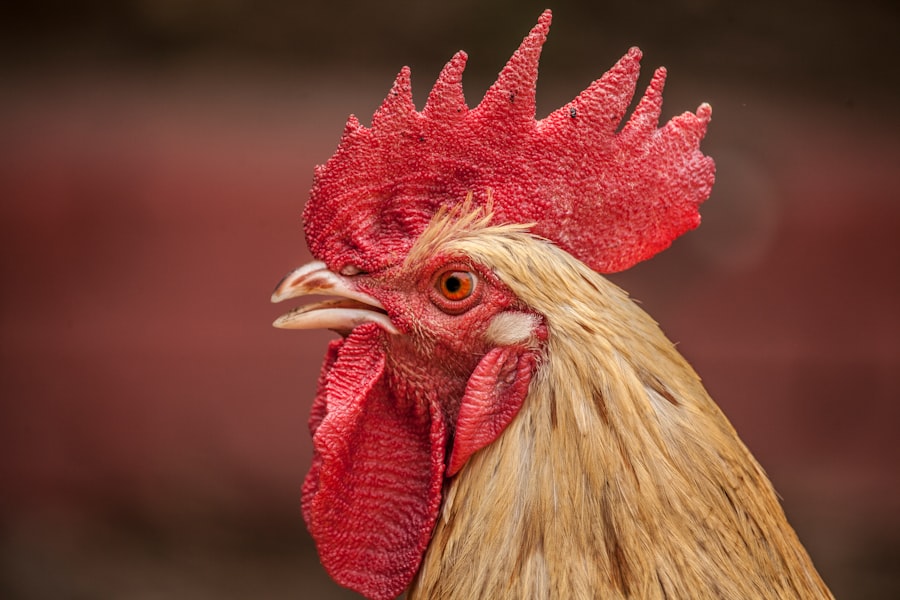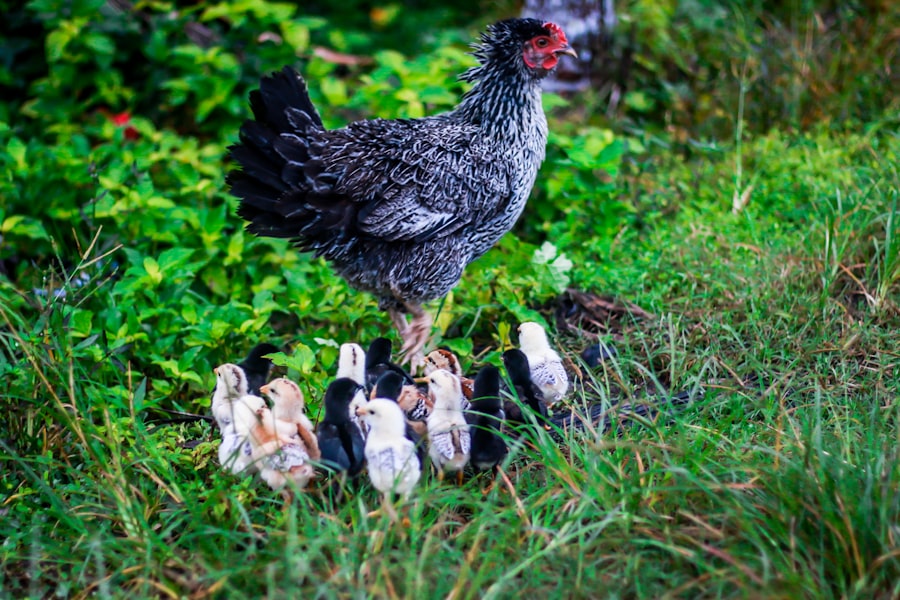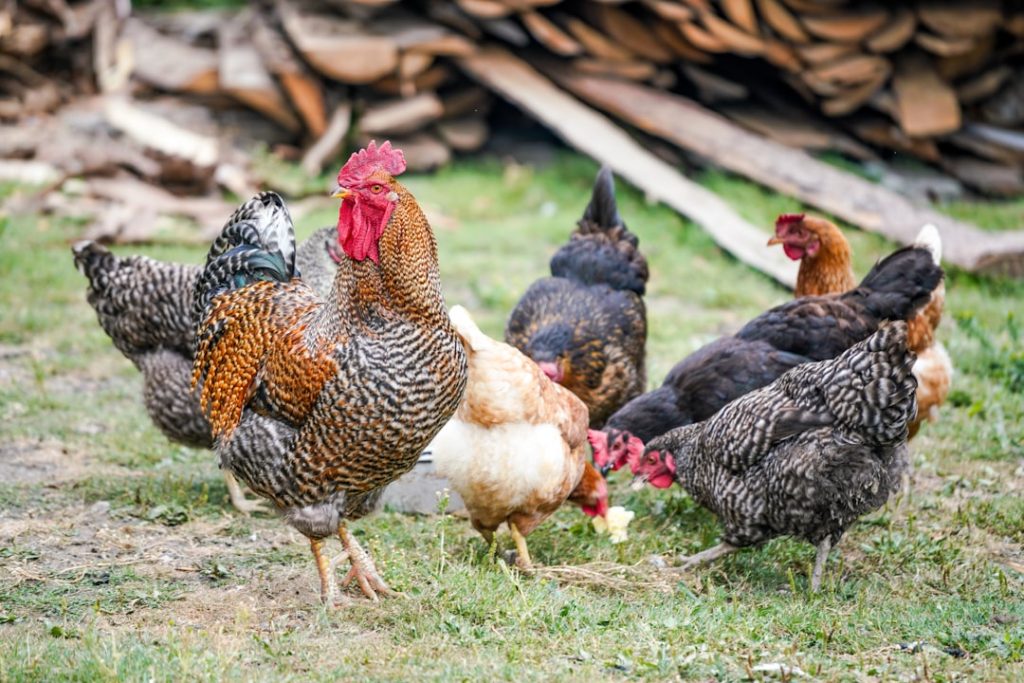Chicken enrichment is a crucial aspect of poultry husbandry that promotes the well-being and health of the birds. Providing mental and physical stimulation helps prevent negative behaviors such as feather pecking and aggression, while also potentially improving egg production. A stimulating environment allows chickens to engage in natural behaviors like foraging, dust bathing, and exploration, which are essential for their overall welfare.
In their natural habitat, chickens spend a significant portion of their day searching for food and interacting with their surroundings. Replicating these conditions in a domestic setting can help alleviate stress and boredom that may arise from confinement. Enrichment strategies can include creating a chicken-friendly environment, offering various activities, and introducing DIY toys.
Incorporating natural elements into the chicken coop and run area can provide additional stimulation. This may include perches, nesting boxes, and areas for dust bathing. Interactive activities that involve both chickens and their caretakers can further enhance the birds’ quality of life.
By implementing a range of enrichment techniques, poultry keepers can ensure their chickens remain active, engaged, and healthy. This approach not only benefits the birds but can also lead to a more rewarding experience for those who care for them.
Table of Contents
- 1 Creating a Chicken-Friendly Environment
- 2 Providing Enrichment Activities for Chickens
- 3 DIY Toys and Games for Chickens
- 4 Incorporating Natural Elements into the Chicken Coop
- 5 Interactive Activities for Chickens and Their Owners
- 6 Observing and Understanding Chicken Behavior
- 7 FAQs
- 7.1 What are some ideas for keeping chickens entertained?
- 7.2 Why is it important to keep chickens entertained?
- 7.3 What are some examples of toys and objects that chickens enjoy?
- 7.4 How can I create a stimulating environment for my chickens?
- 7.5 Are there any specific activities that chickens enjoy?
Key Takeaways
- Keeping chickens entertained is important for their physical and mental well-being
- Creating a chicken-friendly environment involves providing space to roam and explore
- Enrichment activities for chickens can include hanging treats, providing perches, and introducing new objects
- DIY toys and games for chickens can be made from simple household items like PVC pipes and plastic bottles
- Incorporating natural elements into the chicken coop, such as branches and logs, can provide entertainment and stimulation for chickens
Creating a Chicken-Friendly Environment
Designing the Perfect Coop
The coop should be clean, well-ventilated, and free from drafts, with plenty of roosting space and nesting boxes. This will ensure that your chickens have a comfortable and safe place to rest and lay eggs.
Providing a Stimulating Run
The run should be securely fenced to protect the chickens from predators and provide them with access to fresh air, sunlight, and a variety of natural elements. Providing ample space for your chickens to roam and explore is key to keeping them entertained and preventing boredom-related issues.
Meeting Their Physical and Behavioral Needs
In addition to space, it’s important to provide your chickens with access to fresh water, high-quality feed, and a variety of nutritious treats. Chickens enjoy scratching and pecking at the ground, so providing them with access to a dirt or sand area where they can dust bathe and forage for insects is also important. Adding perches, branches, and other natural elements to the coop and run can provide chickens with opportunities for exercise and mental stimulation. By creating a chicken-friendly environment that meets their physical and behavioral needs, you can ensure that your birds are happy, healthy, and entertained.
Providing Enrichment Activities for Chickens

Providing enrichment activities is an excellent way to keep chickens entertained and mentally stimulated. Enrichment activities can include hanging treats or vegetables from strings or wires for chickens to peck at, scattering scratch grains or mealworms in the coop or run for them to find, or providing them with puzzle feeders that require them to work for their food. These activities not only keep chickens entertained but also encourage natural behaviors such as foraging and problem-solving.
Additionally, providing chickens with access to a variety of toys such as mirrors, balls, or even simple objects like empty plastic bottles can provide them with mental stimulation and prevent boredom. Another way to provide enrichment for chickens is by introducing new objects or rearranging their environment from time to time. Chickens are naturally curious creatures, so introducing new objects such as logs, branches, or even a small kiddie pool filled with sand or dirt can pique their interest and provide them with new opportunities for exploration and play.
Rearranging perches or adding new roosting spots can also keep things interesting for your birds. By providing a variety of enrichment activities and introducing new objects into their environment, you can keep your chickens engaged and entertained. Providing enrichment activities is an excellent way to keep chickens entertained and mentally stimulated.
Enrichment activities can include hanging treats or vegetables from strings or wires for chickens to peck at, scattering scratch grains or mealworms in the coop or run for them to find, or providing them with puzzle feeders that require them to work for their food. These activities not only keep chickens entertained but also encourage natural behaviors such as foraging and problem-solving. Additionally, providing chickens with access to a variety of toys such as mirrors, balls, or even simple objects like empty plastic bottles can provide them with mental stimulation and prevent boredom.
Another way to provide enrichment for chickens is by introducing new objects or rearranging their environment from time to time. Chickens are naturally curious creatures, so introducing new objects such as logs, branches, or even a small kiddie pool filled with sand or dirt can pique their interest and provide them with new opportunities for exploration and play. Rearranging perches or adding new roosting spots can also keep things interesting for your birds.
By providing a variety of enrichment activities and introducing new objects into their environment, you can keep your chickens engaged and entertained.
DIY Toys and Games for Chickens
Creating DIY toys and games for your chickens is a fun and cost-effective way to keep them entertained. There are many simple DIY toys that you can make using household items such as PVC pipes, plastic bottles, or old CDs. For example, you can create a chicken feeder ball by cutting holes in a plastic bottle and filling it with scratch grains or mealworms.
As the chickens peck at the bottle, the treats will gradually fall out, providing them with both mental stimulation and a tasty reward. Another easy DIY toy is a hanging treat dispenser made from a PVC pipe. Simply drill holes in the pipe, fill it with treats or vegetables, and hang it in the coop or run for the chickens to peck at.
You can also create a simple mirror toy by attaching a small mirror to the inside of the coop or run. Chickens are naturally curious creatures, so they will enjoy pecking at their reflection and exploring this new object in their environment. In addition to DIY toys, you can also create simple games for your chickens to play.
For example, you can set up a small obstacle course using logs or branches for the chickens to navigate through. You can also scatter treats or mealworms around the coop or run for the chickens to find, encouraging them to use their natural foraging instincts. By creating DIY toys and games for your chickens, you can provide them with mental stimulation and entertainment while also fostering their natural behaviors.
Creating DIY toys and games for your chickens is a fun and cost-effective way to keep them entertained. There are many simple DIY toys that you can make using household items such as PVC pipes, plastic bottles, or old CDs. For example, you can create a chicken feeder ball by cutting holes in a plastic bottle and filling it with scratch grains or mealworms.
As the chickens peck at the bottle, the treats will gradually fall out, providing them with both mental stimulation and a tasty reward. Another easy DIY toy is a hanging treat dispenser made from a PVC pipe. Simply drill holes in the pipe, fill it with treats or vegetables, and hang it in the coop or run for the chickens to peck at.
You can also create a simple mirror toy by attaching a small mirror to the inside of the coop or run. Chickens are naturally curious creatures, so they will enjoy pecking at their reflection and exploring this new object in their environment. In addition to DIY toys, you can also create simple games for your chickens to play.
For example, you can set up a small obstacle course using logs or branches for the chickens to navigate through. You can also scatter treats or mealworms around the coop or run for the chickens to find, encouraging them to use their natural foraging instincts. By creating DIY toys and games for your chickens, you can provide them with mental stimulation and entertainment while also fostering their natural behaviors.
Incorporating Natural Elements into the Chicken Coop
Incorporating natural elements into the chicken coop is an excellent way to keep chickens entertained while also providing them with opportunities for exercise and mental stimulation. Adding perches made from branches or logs provides chickens with elevated spaces where they can roost, observe their surroundings, and engage in natural behaviors such as preening and stretching their wings. Natural perches also encourage exercise by requiring chickens to jump up onto them.
Another way to incorporate natural elements into the chicken coop is by providing access to dirt or sand areas where chickens can dust bathe. Dust bathing is an important behavior for chickens as it helps them maintain healthy feathers and skin by removing excess oil and parasites. Providing chickens with access to dirt or sand areas allows them to engage in this natural behavior while also providing them with mental stimulation.
In addition to perches and dust bathing areas, you can also add plants or shrubs to the chicken coop or run. Chickens enjoy pecking at plants and exploring new objects in their environment. Adding plants not only provides chickens with mental stimulation but also creates a more naturalistic environment for them to live in.
By incorporating natural elements into the chicken coop, you can provide your birds with opportunities for exercise, mental stimulation, and natural behaviors. Incorporating natural elements into the chicken coop is an excellent way to keep chickens entertained while also providing them with opportunities for exercise and mental stimulation. Adding perches made from branches or logs provides chickens with elevated spaces where they can roost, observe their surroundings, and engage in natural behaviors such as preening and stretching their wings.
Natural perches also encourage exercise by requiring chickens to jump up onto them. Another way to incorporate natural elements into the chicken coop is by providing access to dirt or sand areas where chickens can dust bathe. Dust bathing is an important behavior for chickens as it helps them maintain healthy feathers and skin by removing excess oil and parasites.
Providing chickens with access to dirt or sand areas allows them to engage in this natural behavior while also providing them with mental stimulation. In addition to perches and dust bathing areas, you can also add plants or shrubs to the chicken coop or run. Chickens enjoy pecking at plants and exploring new objects in their environment.
Adding plants not only provides chickens with mental stimulation but also creates a more naturalistic environment for them to live in. By incorporating natural elements into the chicken coop, you can provide your birds with opportunities for exercise, mental stimulation, and natural behaviors.
Interactive Activities for Chickens and Their Owners

Training with Treats
One interactive activity that you can do with your chickens is training them to come when called using treats as rewards. This not only provides mental stimulation but also helps reinforce positive behaviors.
Outdoor Play Areas
Another interactive activity is setting up an outdoor play area where you can spend time interacting with your birds while they explore new objects or obstacles. You can set up simple agility courses using logs or branches for your chickens to navigate through while encouraging them with treats or praise. This not only provides physical exercise but also fosters trust between you and your birds.
Observing Behavior
In addition to training and outdoor play areas, spending time simply observing your birds’ behavior can be an interactive activity in itself. Chickens have complex social structures and behaviors that are fascinating to watch. By spending time observing your flock’s interactions with each other as well as their responses to different stimuli in their environment, you can gain a better understanding of their needs and preferences while also providing them with socialization.
Observing and Understanding Chicken Behavior
Observing chicken behavior is essential for understanding their needs and preferences while also ensuring that they are happy and healthy. Chickens have complex social structures and behaviors that are fascinating to watch. By spending time observing your flock’s interactions with each other as well as their responses to different stimuli in their environment, you can gain valuable insights into their well-being.
One important behavior to observe is how your flock interacts during feeding time. Dominant birds may monopolize food sources while more timid birds may struggle to get enough food. Observing these interactions allows you to ensure that all of your birds are getting enough nutrition while also identifying any potential issues such as bullying or aggression within the flock.
Another behavior to observe is how your birds interact during roosting time. Chickens have established pecking orders within their flocks which may affect how they interact during roosting time. Observing these interactions allows you to ensure that all of your birds
If you’re considering turning a shed into a chicken coop, you may also want to think about how many chickens you’ll need for your family. According to Poultry Wizard, the number of chickens you need for a family of four depends on how many eggs you want and how much space you have. To keep your chickens happy and healthy in their new coop, you can also explore ideas for keeping them entertained, such as providing them with toys and activities. For more information on creating a comfortable living space for your chickens, check out this article on choosing a heater for a chicken coop.
FAQs
What are some ideas for keeping chickens entertained?
Some ideas for keeping chickens entertained include providing them with a spacious and stimulating environment, offering a variety of toys and objects for pecking and scratching, and allowing them to forage for insects and plants.
Why is it important to keep chickens entertained?
Keeping chickens entertained is important for their overall well-being and mental stimulation. It can also help reduce stress and prevent negative behaviors such as pecking and aggression.
What are some examples of toys and objects that chickens enjoy?
Chickens enjoy toys and objects such as hanging treats, mirrors, perches, and objects for pecking and scratching, such as cabbage or lettuce heads.
How can I create a stimulating environment for my chickens?
You can create a stimulating environment for your chickens by providing them with ample space to roam, natural perches and hiding spots, and opportunities for foraging and exploring.
Are there any specific activities that chickens enjoy?
Chickens enjoy activities such as dust bathing, foraging for insects and plants, and pecking and scratching at objects. They also enjoy socializing with other chickens and engaging in natural behaviors.
Meet Walter, the feathered-friend fanatic of Florida! Nestled in the sunshine state, Walter struts through life with his feathered companions, clucking his way to happiness. With a coop that’s fancier than a five-star hotel, he’s the Don Juan of the chicken world. When he’s not teaching his hens to do the cha-cha, you’ll find him in a heated debate with his prized rooster, Sir Clucks-a-Lot. Walter’s poultry passion is no yolk; he’s the sunny-side-up guy you never knew you needed in your flock of friends!







